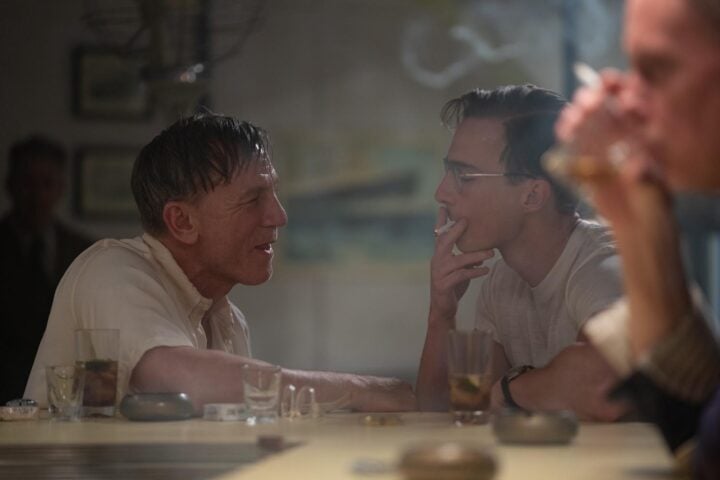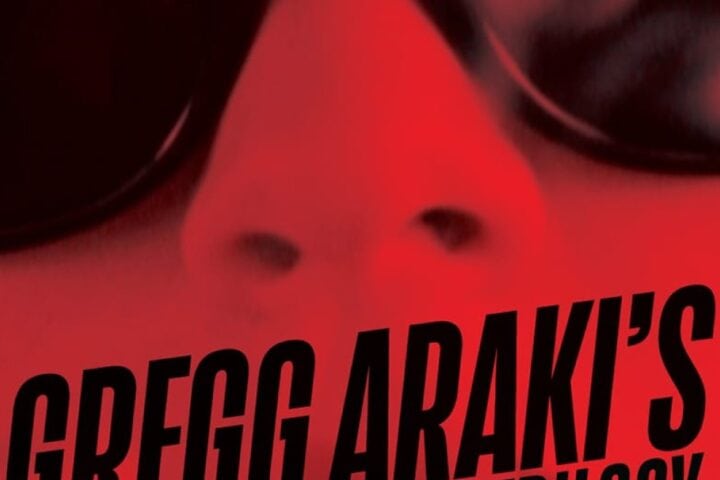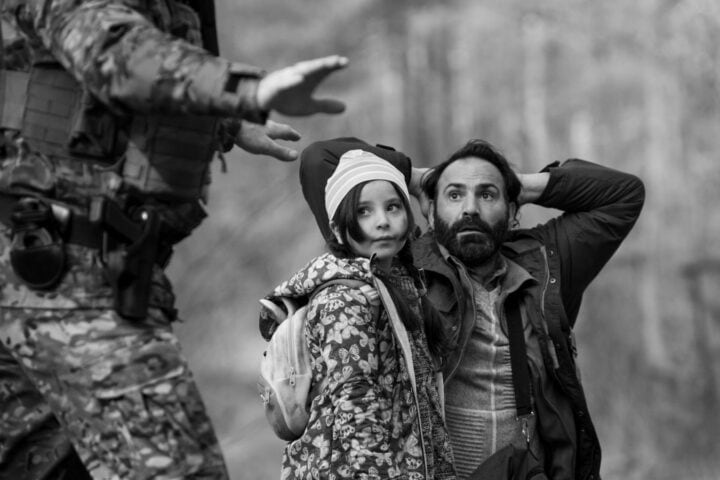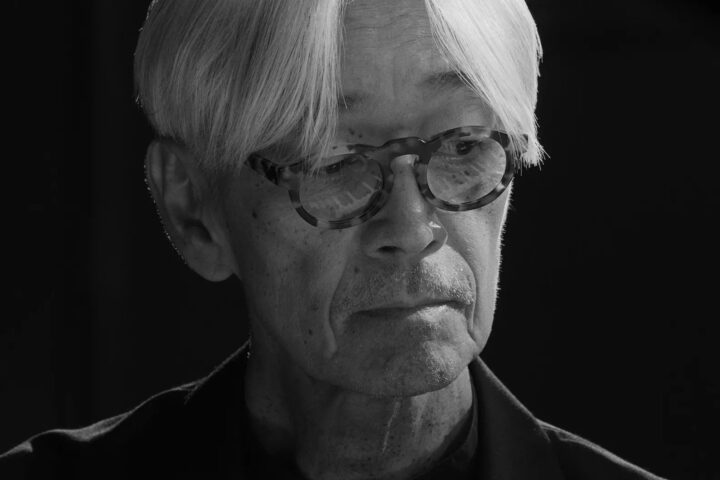Lisandro Alonso’s heady, intoxicating Eureka opens on a pristine beach where a Native American musician sings toward the sun. None of what he says is subtitled, though it’s apparent that his personal history, as well as that of his people, colors every word. When his chant concludes, the man walks slowly inland in one of the protracted transitional sequences in which Alonso specializes. Of all the practitioners of so-called “slow cinema,” the Argentine filmmaker excels at making even the most anti-dramatic actions riveting.
Eventually, the Native singer comes to an overlook where he spots a wagon in the distance. In the back of the vehicle sits a grizzled gunslinger named Murphy (Viggo Mortensen). Up to this point, Eureka has the feel of an ethnographic documentary. But with the arrival of a bona fide movie star, the ambience shifts toward the thorny fantasyland of the American western.
The genre trappings are familiar, but this isn’t any old horse opera. Murphy has come to this desolate place on a mission to rescue his kidnapped daughter, Molly (Viilbjørk Malling Agger), and as such the film’s story is an effective redo, with the same two performers, of Alonso’s Jauja. Murphy seeks out the aid of El Coronel (Chiara Mastroianni), the madam/boss of a settlement where violence is the religion and gunfire echoes in the air like pealing church bells. You can sense the influence of John Ford in the morally and thematically complex revenge plot, of Sergio Leone via the Andalusian locations that stand in, as they did in most of the Italian director’s revisionist oaters, for the wild wild West, and of Jim Jarmusch’s masterful acid western Dead Man in both the crisp black-and-white photography and the ungainly approach to violence.
But Alonso puts his own stamp on the proceedings, particularly in how he gives people on the periphery—such as the indigenous manservant who combs El Coronel’s hair or the Spanish nun (Luísa Cruz) who refuses to escort Murphy all the way into town—a chance to dominate the screen, even if only for a moment or two. This proves key to where the tale goes, for at about the 25-minute mark, in yet another about-face, Eureka morphs into something far different than the self-aware riff on the white savior trope that we’ve been watching. And it’s not the last time such a drastic aesthetic and narrative reversal will occur in the film.
The way in which Alonso transitions from Murphy’s roaring rampage of revenge to a more disquietingly modern chronicle of a South Dakota reservation policewoman, Alaina (Alaina Clifford), and her sweet, increasingly disaffected niece, Sadie (Sadie Lapointe), is so brilliant and pointed that it’s best to experience it unspoiled. Ditto how the film’s concluding section emerges out of an apparent transcendence of space and time, the focus transposed to an ambiguously South American locale (the amorphous sense of displacement is very intentional) where a forest-dwelling Native community is upended by romantic rivalry and a capitalist interloper.
A few characters, or the actors playing them, recur in each section, though not necessarily with the same name, or even in human form. And as he demonstrated in his languorous, mesmeric Liverpool, Alonso has a talent for imbuing certain objects (a keychain in the earlier film, a bird feather and a pocketknife here) with a talismanic power that suggests there’s much more going on than meets the eye. The metaphysical realm governs the non-ideal world inhabited by each of Eureka’s characters, though there’s still plenty of poignance and poetry to be found in their day-to-day existence—even if, as in the case of Alaina and Sadie, a life shaped by generations of both state-sanctioned and self-inflicted oppression is proving untenable.
The South Dakota scenes, in which Alaina moves grimly between drug dens and domestic disputes while Sadie does her level best to connect with everyone from her jailed brother to a naïvely well-meaning movie actress, are the verisimilar heart of Eureka. The vengeance western and the South American love story, by contrast, are myth-tinged bookends that provocatively grapple with how a given culture’s histories are exploited, packaged, and sold.
The real-world effects are rarely pretty. To the victors go the spoils, and the ability to shape certain narratives for ages. If there’s comfort to be found, it’s on the abstract plane that we catch fleeting glimpses of here, that ethereal domain where, as Eureka’s sublime final sequence suggests, mankind’s pernicious, power-hungry sway is put, humblingly, into finite context.
Since 2001, we've brought you uncompromising, candid takes on the world of film, music, television, video games, theater, and more. Independently owned and operated publications like Slant have been hit hard in recent years, but we’re committed to keeping our content free and accessible—meaning no paywalls or fees.
If you like what we do, please consider subscribing to our Patreon or making a donation.





